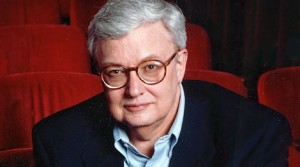 It was a shock to hear of the death of Roger Ebert Thursday at the age of 70.
It was a shock to hear of the death of Roger Ebert Thursday at the age of 70.
Only two days earlier, he had announced his “leave of presence” as he meant to slow down working as he fought a new round of cancer. He had been a survivor before, continuing his canny reviews and wit after an earlier round had robbed him of his literal voice and his jaw.
Ebert was an influential film critic on many levels; his Pulitzer Prize-winning writing could shape a auteur’s career, his upturned thumb on TV could spell the fortunes of weekly releases; and for at least a couple of generations of burgeoning critics, he was the standard to which all aspired.
His was the smartest take on “Siskel & Ebert at the Movies” of course; his consistency meant that all viewers — not only those who agreed with him — could gauge their own reactions to new films based on his assessment.
Ebert was a newspaperman from the start, who stayed at his first job for 40 years and set his own course on his own closely followed blog after that. He was one of the wittiest voices on Twitter and won the New Yorker cartoon caption contest at least once.
As a young writer, I was attracted to movie reviewing as a way to see everything at the multiplex for free. (My reviewing career, 40 years later, sort of operates on the same principal, especially as it comes to theater reviews). I sold my writing to a local weekly, published it in the high school paper, an underground paper, and all through college. Film was also something I went back to in my professional career. There were a few years in the 1980s when I saw everything that came out.
Early in my career, I went to see Ebert speak at a local college. He was expansive and smart and helpful to young writers. When the speech and its question/answer period were over, he continued to hang around and talk to some of us nervous newbies in the presence of our hero. He was never less than encouraging and was proud of his outre writing credits, including early contributions to a national sci-fi magazine and his Russ Meyers screenplays for “Beyond the Valley of the Dolls” and “Beneath the Valley of the Ultra-Vixens.”
It may be no accident that my film taste is very close to his – “Citizen Kane” is a favorite, and I agree that seeing foreign films is a good way to glimpse examples of other lives. But his influence on so many people — from his filmgoing advice, to his nimble writing to his example for scores of critics who have come after him — will continue for years go come.